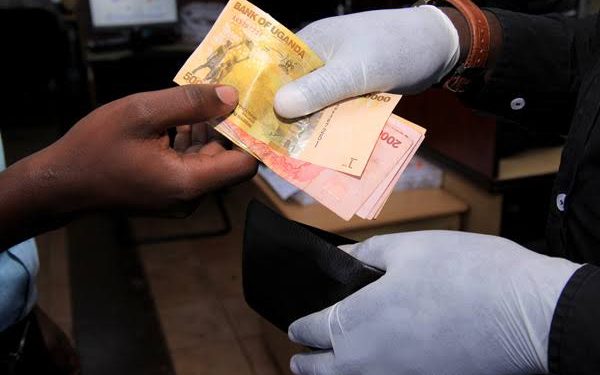The Uganda Development Bank has been put on the spot after it emerged that it disbursed up to Shs444 billion to struggling businesses but does not want to disclose the list of the owners of the businesses.
The release of the list came after Vox Populi interviewed a number of small and medium size businesses that complained being left out of the stimulus package.
They also claim that the beneficiaries are people who are highly connected to senior government officials.
A leaked list of 84 companies that received the money was published in the media but the bank has refused to name the owners of the companies.
In June, 2020, the government announced a stimulus package for small and medium size enterprises in agro processing, manufacturing and tourism sectors to a tune of about Shs1 trillion to support them during the Covid-19 lockdown.
Parliament raises questions
Last week, the parliament’s Finance Planning and Economic Development committee squared off with the team from the bank over the list of the beneficiaries.
The legislators wanted the list made public but officials from the bank led by Mr Denis Ochieng, the acting Director said the list would remain confidential because it would make the beneficiaries uncomfortable.
The committee members threatened to throw the officials out of the meeting if they did not avail the list.
Mr Henry Musasizi, the committee chairperson wondered why the bank would keep the identities secret when they are borrowing public funds.
“Why do you borrow Government funds when you do not want to be scrutinised? We appropriated this money for a purpose, why don’t you want us to know what it has done?” Musasiziasked.
Ms Avur Jane Pacutho, the Pakwach district woman Member of Parliament said the fact that the bank is not willing to release the names confirms the suspicion that the beneficiaries are “the usual suspects who are politically connected”.
“These are just companies. We have asked you to lift the veil and mention the owners, why are you afraid” Pacuto asked.
State Minister of Finance David Bahati, who had appeared with the managers of the bank failed to convince the legislators who insisted that they produce the list of the beneficiaries.
After pulling and pushing between the legislators and the bank officials, Mr Ochieng hurriedly signed a list and gave it to the committee chairperson.
According to the list that was later leaked in the State owned New Vision, the beneficiaries include banks, hospitals, manufacturers, primary agriculture, agro-processing industries, and tourism and hospitality players.
It has also emerged that some of the beneficiaries exposed have threatened legal actions against the newspaper for the exposure.
The Uganda Development Bank later issued a statement, saying beneficiaries had gone through the right procedure to get the funding in form of loans.
“The list that was published represented all borrowers who applied for funding in form of loans from the bank, underwent the Bank’s objective evaluation criteria and were eligible for funding in line with the Bank’s credit policy,” the bank said in a statement.
The bank, however, denied that not all the companies mentioned in the leaked list had benefited from the Covid-19 stimulus package.
“Therefore, the published list included loans funded using funds from the Bank’s other funders, other than the Government of Uganda,” the bank says.
Contradictions
While the bank has denied giving bailout, on February 8, 2021, the bank published a statement of breakdown of how much it had received and how the funds had been disbursed to various sectors of the economy.
The bank in its statement said in response to the Covid-19 lockdown, the Government of Uganda implemented a raft of measures, including a stimulus package to be implemented by various agencies.
“As part of this stimulus package, the government committed to capitalize UDB with Shs1Trillion; to be used to support production, processing, and manufacturing of essential items for the country to be resilient amidst the supply chain disruptions, and to become self-sufficient, thus rely less on imports especially of essential items that can be locally produced,” it says.
The bank confirmed it had received shs455.2billion as additional capital to support the struggling businesses.
“The Bank employed a series of measures to deploy this funding effectively and expeditiously including nationwide publicity through targeted media interventions boosted by the issuance of public Calls for Applications,” the statement added.
According to the bank statement, it approved credit amounting to Shs444 Billion to various projects spread throughout the country and that 87% of this funding would go towards supporting projects engaged in Primary Agriculture, Agro-processing, and Manufacturing.
The bank disbursed Shs242 Billion. Out of this, shs192Billion (or 79% of disbursements) was to support the three key sectors indicated above.
Shs162Billion was disbursed to projects outside the Kampala metropolitan region.
Breakdown
According to the bank records, loans worth Shs444 billion have screened for funding, where it has either issued a term sheet or has received an application that is currently at any of various stages of the credit appraisal process.
The Bank’s funding activities through the year 2020 include Shs152b went to primary agriculture representing 34%, while Agro-Industrialization has Shs134.8billion representing 30% of the total funding.
Manufacturing was allocated Shs100.8billion, representing 23%, Tourism and Hospitality got Shs20.1 billion which is 5%.
The other sectors like infrastructure had Shs11.9 billion representing 3%, Health Services got Shs10.6 [2%] and others got Shs13.6 billion representing 3%.
Breakdown by region
Central region got Shs74.9billion representing 17%, while eastern Uganda got Shs75.7billion which is 17%. The Kampala-Metro, received Shs109.5 which is the highest at 25%, and northern Uganda got Shs105.9 billion representing 24% and Western took Shs77.9 billion which is 18%.
Impact
According to the bank, the approved projects will generate significant socio-economic impact over the project-lives as projected. The bank says through the sectors, 98,667 jobs will be created. It also says it expects to generate up to $1,925billion and output value is expected to rise to $8,019 trillion, generating a tax revenue of up to $619billion.









